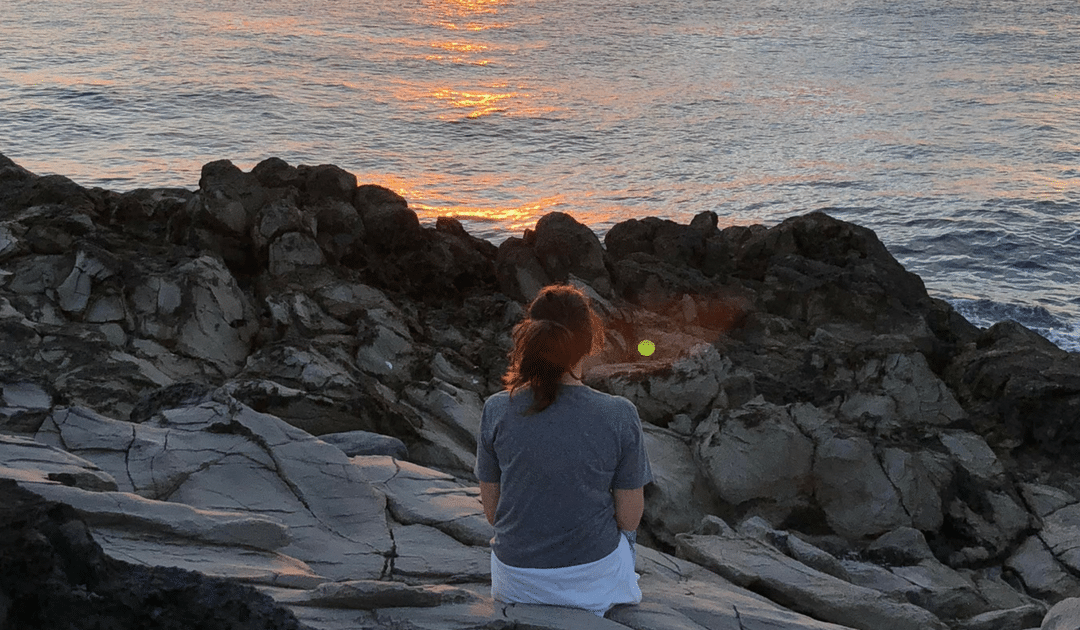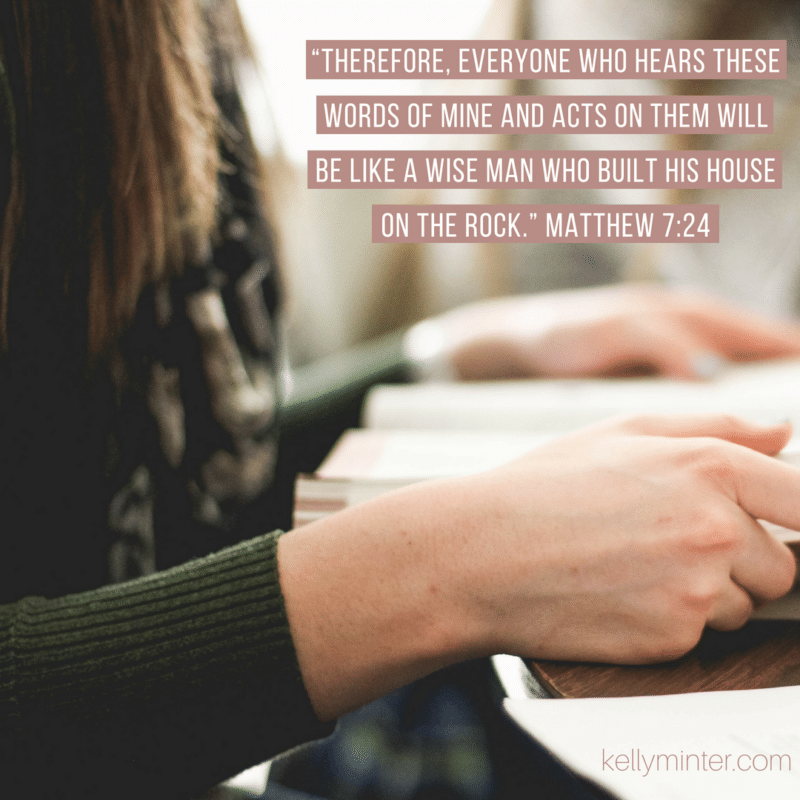The holiday season is upon us and so are all the...

HONEYVINE MILKWEED AND THE SNEAKINESS OF SIN
I’m battling an invasive weed cropping up in my vegetable garden beds. It surreptitiously twists itself around my tomato vines while somehow looking like part of the team. It’s quick to grow and hard to root out. Its most troubling quality is its ability to blend in while being stared at. After some formal and extensive Google research, I’ve determined this garden destroyer to be the honeyvine milkweed. I found its name to be most problematic—why ever would we assign the good words honey and milk to a most vicious weed? We gardeners should stand up to such misrepresentation.
WEEDS AND OUR SIN
As gardening observations so often go with me, I found an interesting parallel in my daily Scripture reading. Did you know the honeyvine milkweed is found in 2 Samuel 11? Well, not by that name of course. It’s called something else. But we’ll get to that in a moment.
In this chapter, David comes across a beautiful woman bathing beneath his rooftop view. He should be at war, but he’s not. He sent someone else to do that job. After inquiring about Bathsheba—who is the wife of one of David’s chief warriors—he sends for her, sleeps with her, and she becomes pregnant. Eventually, David has Bathsheba’s husband Uriah killed on the frontlines of battle (v. 17). (I had never noticed that additional men also die in the fallout of David’s sin to cover up his sin). David and Bathsheba’s firstborn son would also die shortly after birth. The sword would never leave David’s house.
At this point, I must mention that I’m not sure who exactly blog posts like this are for. Those who are actively in sin are rarely interested in reading about its characteristics or consequences. And the people who just love a post about sin and all its sneakiness, and can’t wait to share it with their wayward nephew, are often not aware of their own sin of pride or self-righteousness. So maybe this is just for everyone who, like myself, could use a really stark reminder about how—if we’re not watchful—the honeyvine milkweed, otherwise known as lust, lying, selfishness, adultery, possessiveness, murder, or denial can spring up in the middle of good fruit and wrap its tendrils around us until we can hardly tell our own skin from sin’s tendrils. Until someone like a Nathan has to come along and say, you are the man (or woman) who has done this evil.
What struck me about David’s story is that prior to 2 Samuel 11 he’d had a long and mostly faithful history with God. They’d covered a lot of ground together. David had made humble decisions and courageous moves, he’d valiantly battled and enthusiastically worshipped. And then suddenly a poor decision to stay in Jerusalem, an abdication of leadership, a glance at Bathsheba, an inquiry, a summons, a bedroom.
Honey? Milk? Or a fast growing, ensnaring vine whose consequences would never leave his house?
CONFESS AND STOP THE BLEEDING
I kept thinking, Lord, how did David get here? How do any of us get here? For one thing, we must keep about the business God has called us to. For David, it appears he should have been with his men fighting instead of in Jerusalem wandering his rooftop. When we’re busy cultivating the work God has given us to do, there is less room for unwanted growth of wayward ambitions. And when we do grant soil to sinful ambition, we must deal with our sin swiftly at its root.
[click_to_tweet tweet=”“No matter the extent of the devastation, it’s less than what it will be if we wait to confess tomorrow.”” quote=”“No matter the extent of the devastation, it’s less than what it will be if we wait to confess tomorrow.””]
David had moments to back out, confess, or at the very least stop the bleeding. He didn’t have to keep piling bad choices upon bad choices, although when we’re in sin we tend to convince ourselves this is our only option. We wrongly believe there’s no turning back, that repentance would be too costly, that God’s forgiveness only extends as far as the mile marker we cruised past a long time ago. But this just isn’t true. We can always cooperate with God in dealing with our sin. No matter the extent of the devastation, it’s less than what it will be if we wait to confess tomorrow. David himself showed us we’re never past repentance: “Then I acknowledged my sin to you and did not conceal my iniquity. I said ‘I will confess my transgressions to the LORD,” and you forgave the guilt of my sin.” (Psalm 32:5, also Psalm 51.)
After Nathan called David out for his relationship with Bathsheba and the murder of Uriah, David confessed, “I have sinned against the LORD.” (v. 13.) This is important. David didn’t call sin by another name like milk or honey or my truth. As soon as we redefine our sin—whatever sin it may be—we stop eradicating it and begin cultivating it.
[click_to_tweet tweet=”What I most hope to remember is that, no matter how entangling sin’s hold, there’s always opportunity to repent.” quote=”What I most hope to remember is that, no matter how entangling sin’s hold, there’s always opportunity to repent.”]
So back to my garden for a moment. While I would like to petition we change the name of the honeyvine milkweed to something more appropriately representative, perhaps the next time I spot this imposter in my garden I will remember that names are not always accurate definitions of who or what they’re attached to. I will remember that sin grows fast as a weed, not as an eggplant—there’s a reason for the expression. I will think of sin’s obscurity and how it can grow up even in the lives of God’s anointed. And what I most hope to remember is that, no matter how entangling sin’s hold, there’s always opportunity to repent.
And the next time I’m in my garden I will think to look for a lighter subject, say, the cucumber.
This post originally appeared on lifewayvoices.com

Letting Go of Holiday Ideals for the Savior

What It Means To Be Blessed (Excerpt from “The Blessed Life”)
“Blessed are the poor in spirit, for the kingdom...

Lily Pads in Loneliness
I remember loneliness well. It settled in like a...

Some Brief Thoughts On Singleness
One of the prayers I have been praying this...

How Hospitality Can Be Your Lifestyle
I just returned from ten days in Italy. Before...







